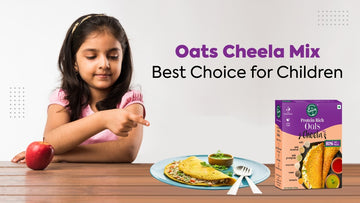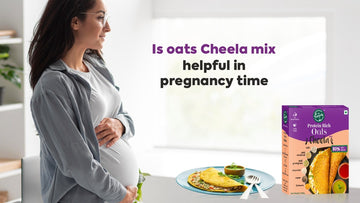
A gluten-free diet is a dietary approach that involves avoiding the consumption of gluten, which is a protein found in wheat, barley, rye, and their derivatives. This diet is primarily followed by individuals with celiac disease, a genetic autoimmune disorder triggered by the ingestion of gluten. Some people also choose to follow a gluten-free diet due to gluten sensitivity or as a personal preference.
Gluten is responsible for the elasticity in dough and helps it rise during baking. It can be found in a wide range of food products, including bread, pasta, cereal, baked goods, and processed foods. Gluten may also be present in unexpected sources such as sauces, dressings, soups, and even some medications.
When individuals with celiac disease consume gluten, it triggers an immune response that damages the lining of the small intestine. This can lead to various symptoms, including abdominal pain, diarrhea, bloating, fatigue, weight loss, and nutrient deficiencies. Over time, if left untreated, celiac disease can cause serious complications and long-term health issues...
By following a gluten-free diet, individuals with celiac disease can manage their condition and alleviate symptoms. This involves avoiding all sources of gluten in their diet. Instead, they can opt for naturally gluten-free foods such as fruits, vegetables, lean meats, fish, poultry, eggs, legumes, dairy products, and gluten-free grains like rice, quinoa, corn, and gluten-free oats. Additionally, there are now numerous gluten-free alternatives available in stores, including bread, pasta, flour, and baked goods, which are made with alternative grains or gluten substitutes.

Buy Now
Is cheela gluten free food?
Cheela, also known as chilla or besan cheela, is a popular Indian dish made from gram flour (besan) batter. Gram flour is made from chickpeas, which are naturally gluten-free. Therefore, cheela can be considered a gluten-free food. However, it's important to note that the ingredients and preparation methods can vary, so it's always recommended to check the specific recipe or the brand of gram flour being used to ensure it is indeed gluten-free. Additionally, if any additional ingredients or toppings are added to the cheela, it's essential to verify their gluten-free status as well.
Reasons for Following a Gluten-Free Diet There are several reasons why individuals may choose to follow a gluten-free diet. Here are some of the main reasons:
Celiac Disease: People with celiac disease have a genetic autoimmune disorder that causes their immune system to react negatively to gluten. Ingesting gluten triggers an immune response that damages the lining of the small intestine, leading to various symptoms and long-term health complications. Following a strict gluten-free diet is essential for managing celiac disease and preventing further damage.
Non-Celiac Gluten Sensitivity: Some individuals experience symptoms similar to those of celiac disease when consuming gluten but do not test positive for the condition. This condition is known as non-celiac gluten sensitivity. Although the exact cause is still not fully understood, eliminating gluten from the diet can help alleviate symptoms such as bloating, abdominal pain, and fatigue.
Wheat Allergy: Some people have an allergic reaction to wheat, which can manifest as a range of symptoms, including skin rashes, itching, nasal congestion, digestive problems, and even potentially life-threatening anaphylaxis. In such cases, avoiding wheat and other gluten-containing grains is necessary to prevent allergic reactions.
Dermatitis Herpetiformis: Dermatitis herpetiformis is a chronic skin condition associated with celiac disease. It causes itchy and blistering rashes, typically on the elbows, knees, buttocks, and scalp. Following a gluten-free diet is essential for managing this condition and preventing flare-ups.
Personal Preference or Lifestyle Choice: Some individuals choose to adopt a gluten-free diet as a personal preference or as part of a healthy lifestyle. They may believe it provides various health benefits, such as increased energy levels, weight loss, or improved digestion. However, it's important to note that there is limited scientific evidence supporting these claims for individuals without celiac disease or gluten sensitivity.
Health Benefits of a Gluten-Free Diet
While a gluten-free diet is essential for individuals with celiac disease, non-celiac gluten sensitivity, wheat allergy, or dermatitis herpetiformis, there is limited scientific evidence to support significant health benefits of a gluten-free diet for individuals without these conditions. It's important to note that removing gluten from the diet may have both positive and negative effects on overall health. Here are some potential health benefits associated with a gluten-free diet:

Improved Digestive Symptoms: For individuals with celiac disease or non-celiac gluten sensitivity, eliminating gluten from the diet can lead to a reduction in digestive symptoms such as bloating, abdominal pain, diarrhea, and gas.
Enhanced Nutrient Absorption: Celiac disease can impair the absorption of essential nutrients in the small intestine. By following a gluten-free diet, individuals with celiac disease can allow the intestine to heal, leading to improved absorption of nutrients, such as iron, calcium, and vitamins.
Weight Management: Some individuals may experience weight loss or improved weight management when adopting a gluten-free diet. This can be attributed to the elimination of high-calorie, processed gluten-containing foods from the diet. However, it's important to note that gluten-free alternatives are not necessarily healthier or lower in calories than their gluten-containing counterparts, so careful food choices are still necessary.
Increased Energy Levels: Some individuals without celiac disease or gluten sensitivity report increased energy levels and reduced fatigue when following a gluten-free diet. However, the scientific evidence supporting this claim is limited and inconsistent.
Focus on Whole Foods: Adopting a gluten-free diet may encourage individuals to focus on whole, unprocessed foods such as fruits, vegetables, lean proteins, and gluten-free grains like quinoa and brown rice. This emphasis on whole foods can lead to a generally healthier diet rich in nutrients, fiber, and antioxidants.
Foods to Avoid on a Gluten-Free Diet
When following a gluten-free diet, it's important to be mindful of the foods that contain gluten or may have cross-contamination. Here are some common foods to avoid:

Wheat and Wheat Products: This includes all forms of wheat, such as wheat flour, durum wheat, semolina, spelt, kamut, and products made from wheat like bread, pasta, couscous, and wheat-based cereals.
Barley: This includes barley flour, pearl barley, malt, malt extract, malt vinegar, and products containing barley such as barley soup and malted beverages.
Rye: Rye and rye flour are to be avoided. This includes products like rye bread, rye crackers, and some types of rye beer.
Triticale: Triticale is a hybrid grain derived from wheat and rye. It contains gluten and should be avoided.
Processed Foods: Many processed foods may contain hidden sources of gluten, such as sauces, dressings, gravies, soups, and processed meats. It's important to read labels carefully or choose certified gluten-free alternatives.
Baked Goods and Pastries: Regular bread, pastries, cakes, cookies, pies, and other baked goods typically contain gluten. Look for gluten-free versions or recipes made with alternative flours.
Pasta and Noodles: Traditional wheat-based pasta and noodles contain gluten. Opt for gluten-free alternatives made from rice, corn, quinoa, or legumes.
Cereals and Breakfast Foods: Most breakfast cereals contain gluten, but gluten-free options made from rice, corn, or gluten-free oats are available.
Beer and Some Alcoholic Beverages: Most beers are made from barley or wheat and contain gluten. However, gluten-free beers and some wines, spirits, and ciders are gluten-free. Check the labels or choose specifically labeled gluten-free varieties.
Sauces and Condiments: Many condiments and sauces, such as soy sauce, teriyaki sauce, hoisin sauce, and some salad dressings, contain gluten. Look for gluten-free versions or make homemade alternatives.
Certain Medications and Supplements: Some medications and supplements may contain gluten as fillers or binders. Check with a healthcare professional or pharmacist to ensure your medications are gluten-free.
Gluten-Free Diet and Weight Loss
While a gluten-free diet may lead to weight loss for some individuals, it is not inherently a weight-loss diet. The potential weight loss associated with a gluten-free diet can be attributed to various factors, including:

Elimination of Processed Foods: When adopting a gluten-free diet, individuals often cut out processed foods that contain gluten, such as bread, pastries, and other baked goods. These foods are typically high in calories, refined carbohydrates, and added sugars. By replacing them with whole, unprocessed foods, individuals may consume fewer calories and achieve weight loss.
Increased Awareness of Food Choices: Following a gluten-free diet may make individuals more conscious of their food choices and encourage them to focus on healthier options. This can lead to an overall healthier diet that includes more fruits, vegetables, lean proteins, and gluten-free whole grains. These nutrient-dense foods can promote weight loss and support overall well-being.
Reduced Consumption of High-Calorie Gluten Substitutes: Some gluten-free products, such as bread, pasta, and baked goods, are made with alternative flours or ingredients that can be higher in calories compared to their gluten-containing counterparts. However, individuals who carefully manage their gluten-free diet and choose whole food options rather than relying heavily on processed gluten-free products can mitigate this potential weight gain.
If weight loss is a goal, it is crucial to focus on a well-balanced diet that includes a variety of nutrient-dense foods, regular physical activity, and portion control. Consulting with a healthcare professional or registered dietitian who can provide personalized guidance based on individual needs and goals is recommended.
Additionally, it's important to remember that a gluten-free diet is essential for individuals with celiac disease, non-celiac gluten sensitivity, or wheat allergy, and should be followed for medical reasons rather than solely for weight loss purposes.
Tips for Maintaining a Gluten-Free Lifestyle
Maintaining a gluten-free lifestyle can be challenging, but with some tips and strategies, it becomes more manageable. Here are some helpful tips for successfully adhering to a gluten-free diet:
Educate Yourself: Learn about foods that contain gluten and those that are naturally gluten-free. Familiarize yourself with common ingredients and hidden sources of gluten. Reading food labels and understanding gluten-free labeling regulations can also be beneficial.
Plan and Prepare Meals: Plan your meals ahead of time and focus on whole, unprocessed foods. Incorporate naturally gluten-free grains like rice, quinoa, and corn, along with fruits, vegetables, lean proteins, and gluten-free sources of dairy.
Be Cautious with Cross-Contamination: Prevent cross-contamination by using separate kitchen utensils, cookware, and cutting boards for gluten-free foods. Clean surfaces thoroughly, and consider using toaster bags or separate toasters to avoid cross-contamination with gluten-containing products.
Explore Gluten-Free Alternatives: Experiment with gluten-free alternatives for your favorite foods. There are now numerous gluten-free options available, including bread, pasta, flour, and baked goods made from alternative grains or gluten substitutes. Try different brands and find the ones you enjoy.
Be Mindful When Dining Out: When dining out, communicate your dietary needs to restaurant staff and inquire about gluten-free options. Choose restaurants that offer gluten-free menus or have knowledgeable staff who can accommodate your needs. However, it's important to note that cross-contamination can occur in restaurant kitchens, so exercise caution.
Pack Snacks and Meals: Carry gluten-free snacks with you when you're on the go to avoid being caught in situations where suitable options may be limited. Additionally, if you're traveling or attending events, consider packing your own gluten-free meals to ensure you have safe and suitable food available.
Connect with Supportive Communities: Join support groups or online communities where you can share experiences, seek advice, and discover new gluten-free recipes and resources. Connecting with others who follow a gluten-free lifestyle can provide valuable support and guidance.
Read Labels Carefully: Always read food labels carefully, as manufacturers may change ingredients or processing methods. Look for "gluten-free" labels or certifications to ensure the products meet gluten-free standards. Additionally, familiarize yourself with ingredients that may indicate the presence of gluten, such as wheat, barley, rye, and malt.
Communicate with Healthcare Professionals: Work closely with healthcare professionals, such as dietitians or nutritionists, who specialize in gluten-related disorders. They can provide personalized advice, help with meal planning, and address any concerns or questions you may have.
Stay Positive and Flexible: Embrace the gluten-free lifestyle with a positive attitude. It may take time to adjust, but focusing on the foods you can enjoy and the health benefits of a gluten-free diet can make the transition easier. Be open to trying new recipes, exploring different cuisines, and discovering gluten-free options that suit your preferences and needs.
Frequently asked Question
Q: What is gluten?
A: Gluten is a protein found in wheat, barley, rye, and their derivatives. It provides elasticity to dough and helps it rise during baking.
Q: Who should follow a gluten-free diet?
A: A gluten-free diet is essential for individuals with celiac disease, non-celiac gluten sensitivity, wheat allergy, or dermatitis herpetiformis. These individuals experience adverse reactions to gluten.
Q: What foods contain gluten?
A: Foods that contain gluten include bread, pasta, cereals, baked goods, and processed foods made with wheat, barley, rye, or their derivatives. Gluten can also be present in unexpected sources such as sauces, dressings, and soups.
Q: What are some gluten-free alternatives?
A: Gluten-free alternatives include grains like rice, quinoa, corn, and gluten-free oats. There are also gluten-free bread, pasta, flour, and baked goods available in stores.
Q: Are all oats gluten-free?
A: Regular oats may be cross-contaminated with gluten during processing. To ensure they are gluten-free, look for oats labeled specifically as "gluten-free."
Q: Is a gluten-free diet automatically healthy?
A: Not necessarily. A gluten-free diet can be healthy if it includes a variety of nutrient-dense foods like fruits, vegetables, lean proteins, and gluten-free whole grains. However, it can also be unhealthy if it relies heavily on processed gluten-free products high in sugar, unhealthy fats, and additives.
Q: How can I ensure a balanced gluten-free diet?
A: Consulting with a healthcare professional or registered dietitian is recommended. They can provide personalized guidance on reading labels, meal planning, and ensuring you meet your nutritional needs.
Q: Can a gluten-free diet help with weight loss?
A: While some individuals may experience weight loss on a gluten-free diet due to eliminating processed foods, it is not a guaranteed weight-loss solution. Careful food choices, portion control, and an overall healthy lifestyle are important for weight management.






